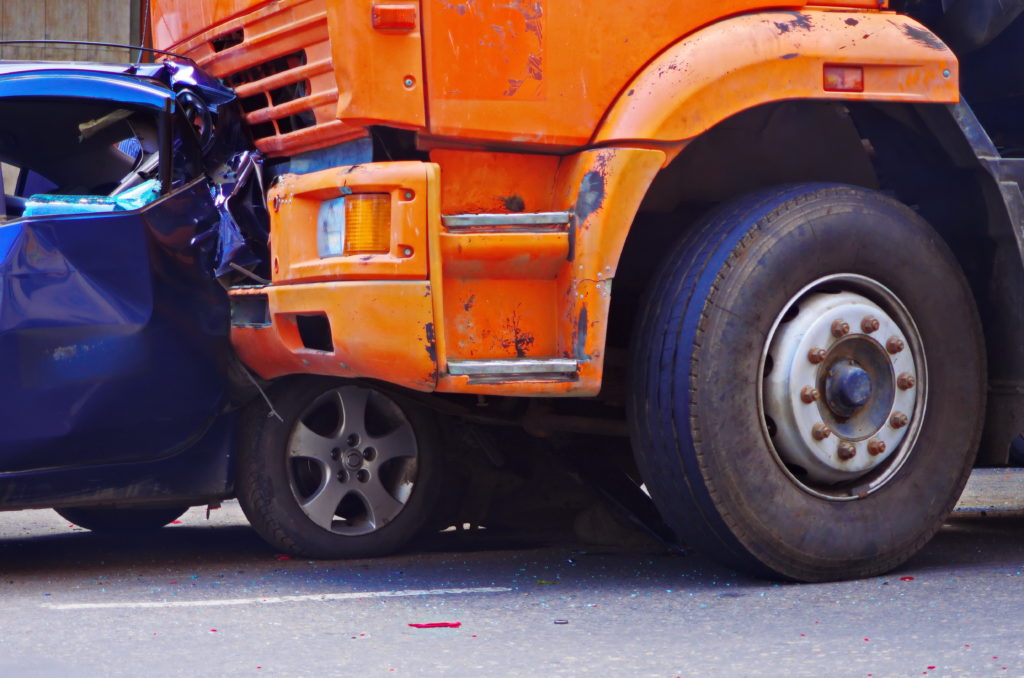
When you add in other factors such as truckers going over the speed limit to meet deadlines and truckers working long hours, catastrophic accidents can always happen. In recent years, accidents involving trucks account for about 14% of the state’s fatal crashes with approximately 3,000 injuries each year.
Who Is Liable?
The liability regarding truck accidents can be complicated and confusing. Some of the parties who may be held responsible or who may share liability include:
• The actual driver of the truck
• The trucking company who owns or operates the truck
• The freight company, forwarder or broker who contracted the truck to move cargo
• The truck manufacturers (where a defect or fault is shown to be blamed for the accident)
• Mechanics or maintenance staff who have been negligent
To add to those potentially complicated scenarios, other drivers may have been liable – or at least partly liable – for causing the accident.
School & Commercial Buses and Municipal Vehicles
The complications get even more complicated when a bus or a municipal vehicle is involved in an accident. Under Louisiana law, privately held bus companies are held to a higher level of responsibility than other drivers. Proving liability may be more difficult with a school district-owned bus.
A proper investigation usually finds the bus driver to be negligent if he or she collides into your vehicle. As a passenger, you have the right to pursue a case against the bus company or district if you are injured as a result of a bus driver’s negligence or faulty equipment.
Under the Federal Tort Claims Act, you can sue the local or federal government if you are involved in an accident caused by the driver of a municipal or federal vehicle. It is one of the few exceptions where private citizens can sue the government.
Municipal and governmental vehicles include county and state school buses, dump trucks, mail trucks, police cars, garbage trucks and government trucks.
What Can Cause a Truck Accident?
• Poor weather conditions
• Faulty truck parts, especially brakes or tires
• Tiredness due to long hours
• Poorly loaded or an overloaded truck
• Alcohol or drug use while driving
• Driving above the speed limit
• Distractions (including the use of mobile phones)
• Design or manufacturing defects
State Laws & Regulations
While the trucking industry is mainly regulated by federal laws – specifically by the Federal Motor Carrier Safety Administration – there are several Louisiana laws that may affect your claim.
Statute of limitations: You have one year from the date the crash occurred to file a claim.
Comparative negligence: Louisiana’s comparative fault law means that your level of liability for an accident can affect the amount of your claim. For example, if you were claiming $100,000 but were found to be 60% to blame, then you will likely only receive $40,000.
No-Pay, No-Play Law: This law is designed to penalize drivers who are either uninsured or under-insured. It prevents anyone who is not insured – or has inadequate insurance – from collecting the first $15,000 in personal injury damages and the first $25,000 in property damages. In other words, you would have to pay the first $15K of your medical bills and $25K in auto or property bills.
An Overview
Establishing liability and identifying responsible parties can be a complex process. With so many potential contributory causes to an accident and with Louisiana’s often complicated laws and regulations, it is rare that cases like this are straightforward.
Lamothe Law Firm attorneys are experienced and qualified to handle truck accident cases from smaller commercial trucks right up to the big 18 wheelers. If you think you have a truck-related accident claim, please contact us at toll-free at (877) 249-6801 to schedule a free case evaluation to discuss how to protect your legal rights.









